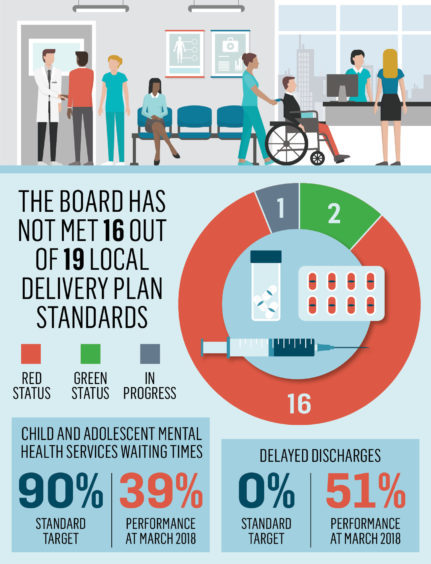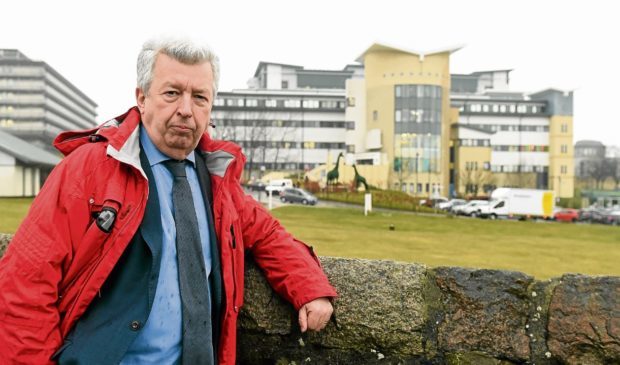Cash-strapped NHS Grampian has not met 16 out of 19 key targets in the past year, according to a new report from an audit watchdog.
Audit Scotland’s 2017/18 report praised the health board for its “effective” financial arrangements, but also found it failed to meet 16 out of 19 of its important Local Delivery Plan (LDP) targets.
It had aimed for 90% of patients to be waiting less than 18 weeks from referral to treatment, but the figure as of March was just 66%.
 The board also aspired to have 90% of children with mental health issues seen within 18 weeks, but just 39% hit the target.
The board also aspired to have 90% of children with mental health issues seen within 18 weeks, but just 39% hit the target.
However, the report added that a number of measures are being taken to improve the situation including increasing funding for recruitment and improving collaboration with Integrated Joint Boards (IJBs).
The report confirmed that the health board would need to make another £18.3million of cuts and savings over the next year.
There is also an ageing staff population with 29% of staff over 55.
Earlier this month, board chief executive Malcolm Wright announced he would stand down in August after almost four years at the helm.
In recent months, he had also been parachuted in to assist crisis-hit NHS Tayside after it became embroiled in a major financial scandal.
Early in his tenure, the board was rocked by two damning reports, by the Royal College of Surgeons of England and Healthcare Improvement Scotland (HIS), which called for major reforms in the general surgery department at ARI.
But Mr Wright was largely credited with turning around the ailing board and overseeing large new capital projects.
North-east Labour MSP Lewis Macdonald praised the leadership at NHS Grampian and said that clinical services were suffering due to a lack of funding.
He said: “I think there is a dramatic contrast between NHS Grampian and NHS Tayside. While Tayside has been a financial basket case, NHS Grampian has been a model of financial propriety.
“This clearly shows that while Tayside has been poorly led and unable to manage with the budget it gets, the quality of leadership at Grampian remains high, although they are underfunded.”
